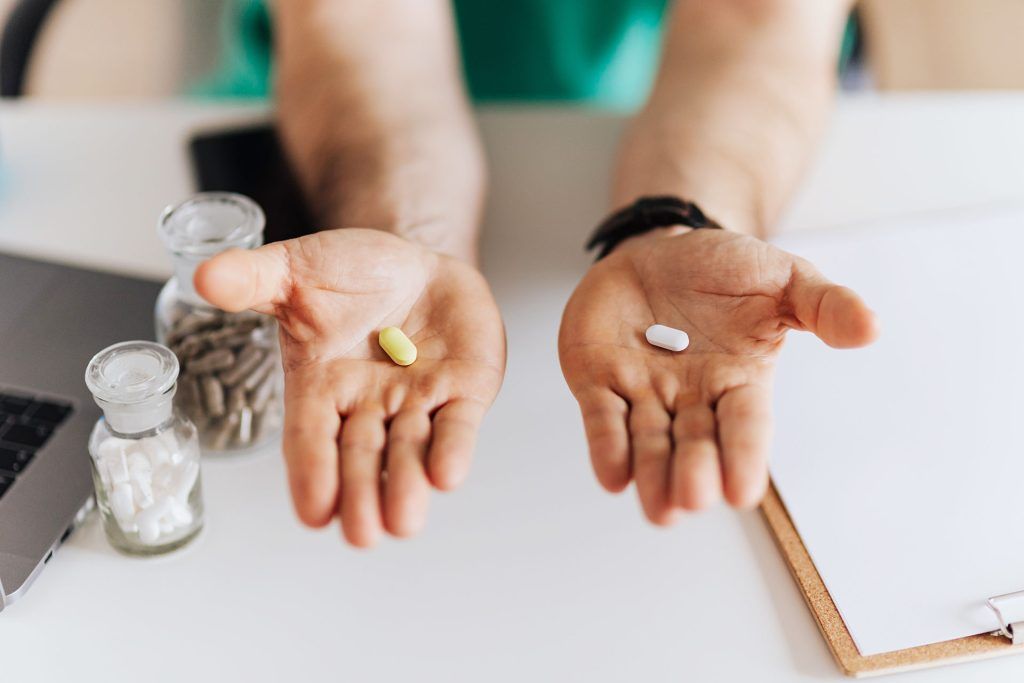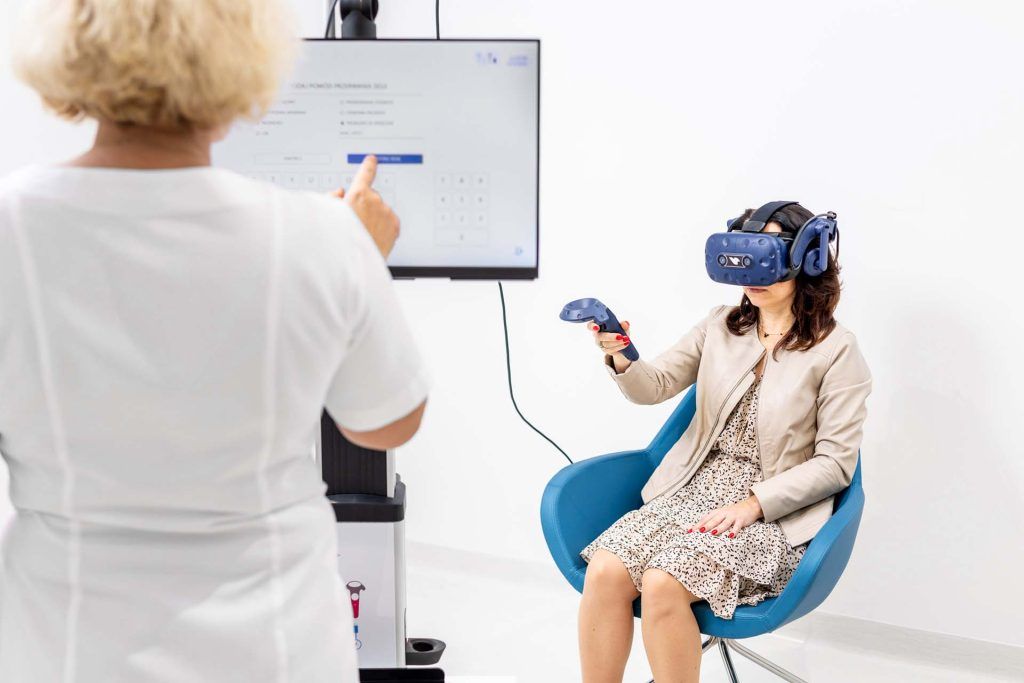Depression destroys the quality of life and will to live, which is why it is so important to treat it. In 70% of cases, standard antidepressant treatment will bring improvement. However, 30% of patients fail to achieve a therapeutic response. Drug-resistant depression poses a difficult challenge. However, it is not the case that nothing can be done for this group of patients.
Principles of depression treatment
Pharmacotherapy combined with psychotherapy is most commonly applied to treat diagnosed depression. The recommended treatment for moderate to severe depression is antidepressant pharmacotherapy. In mild depression, either antidepressants or psychotherapeutic interventions may be used, which in this case may be sufficient.
Drug-resistant depression
Diagnosis and initiation of treatment for depression is a good step, but it only marks the beginning of the way to recovery. Unfortunately, we have to wait a few weeks for the effects of pharmacological treatment. In most patients with depressive disorders, euthymia (cheerful mood) is actually achieved following treatment with standard antidepressants. However, one in three patients will be found unresponsive to pharmacological treatment. Drug-resistant depression is said to occur when the improvement does not follow treatment with two antidepressants at the appropriate dose and time. Certain circumstances conducive to drug resistance are indicated. The lack of expected effectiveness of the usual treatment may occur when the symptoms of depression have not been treated for a long time. That is why it is so important to react quickly to the symptoms of depression and to seek help without delay.

Causes of drug resistance
Why does a typical treatment for depression sometimes fail to bring the desired effect? Several factors influence the ineffectiveness of antidepressant treatment. Before we start investigating deeper, it is worth starting with a prosaic reason, namely whether the prescribed drugs are actually used by the patient. The problems here may include irregularity in taking the drug, arbitrary dose adjustment, premature discontinuation of treatment. When the patient does not follow the orders, we say that we deal with pseudo-resistance. Other causes include:
- mismatched drug selection,
- inadequate treatment time,
- inadequate dose,
- misdiagnosis,
- secondary benefits of being sick,
- life factors that support depression,
- coexistence of interfering diseases,
- lack of acceptance of the treatment method and its side effects,
- use of other specifics that reduce the effectiveness of medicines.
Treatment of drug-resistant depression is a difficult process that requires both the knowledge of a doctor, and the commitment and patience of the patient. The lack of improvement makes the patients skeptical and impatient for further attempts at treatment, especially when they had fears and aversions to pharmacotherapy at the beginning. It should be remembered that patients with depression are at risk of non-cooperation. Lack of cooperation may also result from sourcing secondary benefits from being sick. Exemption from professional and family duties, attention the environment pays to the patient is part of the benefits of illness, and they may stand in the way of recovery.
Other strategies
The term “drug-resistant depression” should not be interpreted as depression resistant to all types of drugs. There are medicines on the market that are effective in patients whose first and second line treatment has failed. The inhaled antidepressant drug with esketamine with high effectiveness and very fast effect is one of the most promising new treatments. However, it should be remembered that treatment with this agent has some limitations (even costs). There are ways to manage treatment-resistant depression. The following strategies are possible:
- strategy for optimizing treatment consisting in verifying the dose and time of use of the drug,
- strategy for switching from one antidepressant to a different one, with other mode of action,
- strategy for combining drugs with different mechanisms of action,
- non-pharmacological strategies: electroshock therapy, vagal nerve stimulation, deep brain stimulation or transcranial magnetic stimulation.
Treating drug-resistant depression is more difficult than in a typical case and may exceed the options available at a mental health clinic (e.g. the need to use electroshock treatments available in selected centers only).
Place of psychotherapy
Since the treatment of moderate and severe depression requires the use of drugs, the question arises concerning the place of psychotherapy in this therapeutic process. Specialists emphasize that psychotherapy constitutes an important part of the treatment of depression, including drug-resistant depression, and can improve the results of treatment. Psychotherapy in the treatment of depression has different functions, and its role varies depending on the severity of the episode and the treatment phase. It helps in understanding the causes of the problem, developing better functioning mechanisms, solving the problem, alleviating and preventing recurrence of symptoms. Psychotherapy helps you through a difficult time when you are in pain. It helps to get the patient cooperate and adhere to therapy. And we already know that the patient’s attitude is very important for the success of pharmacological treatment.

News in psychotherapy
There are also new developments in psychotherapy. VR TierOne offers innovative therapy in Virtual Reality. The therapy is based on the assumptions of Ericksonian psychotherapy, and its effectiveness is enhanced by the immersive VR. The advantages of VR TierOne medical device make it possible to conduct therapy of depression, stress and anxiety. Sounds interesting? And so it is. What is of significance, this form of psychotherapeutic interaction is non-stigmatizing, acceptable to patients, pleasant and available regardless of the availability of psychotherapists. This gives an opportunity to perform rapid intervention in the face of emerging symptoms of depression and preventing it from developing into a more severe drug-resistant form.







